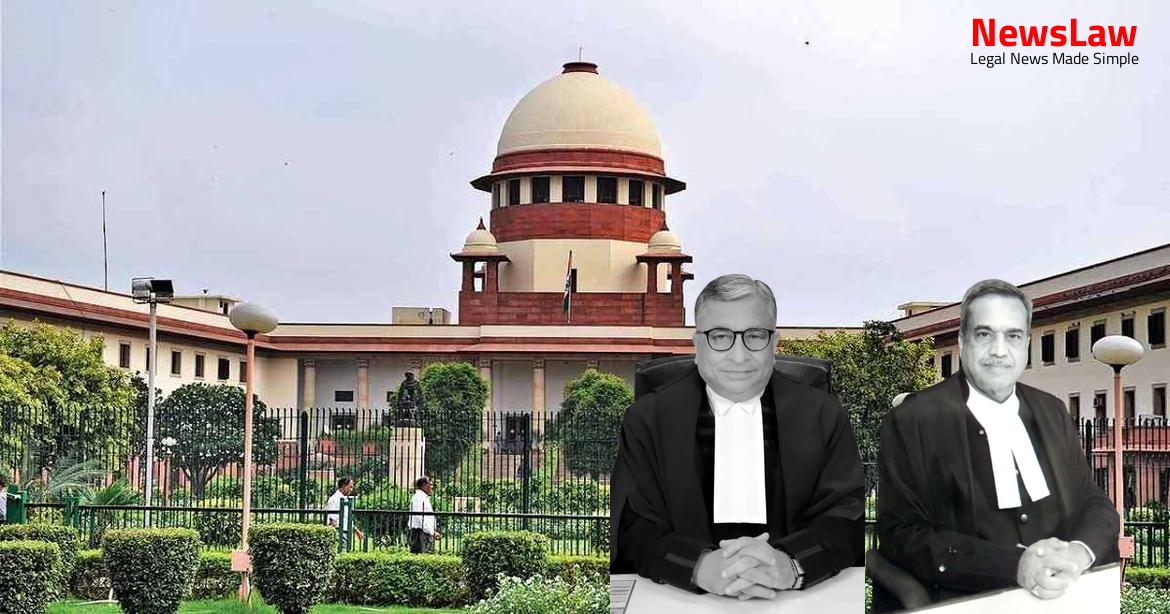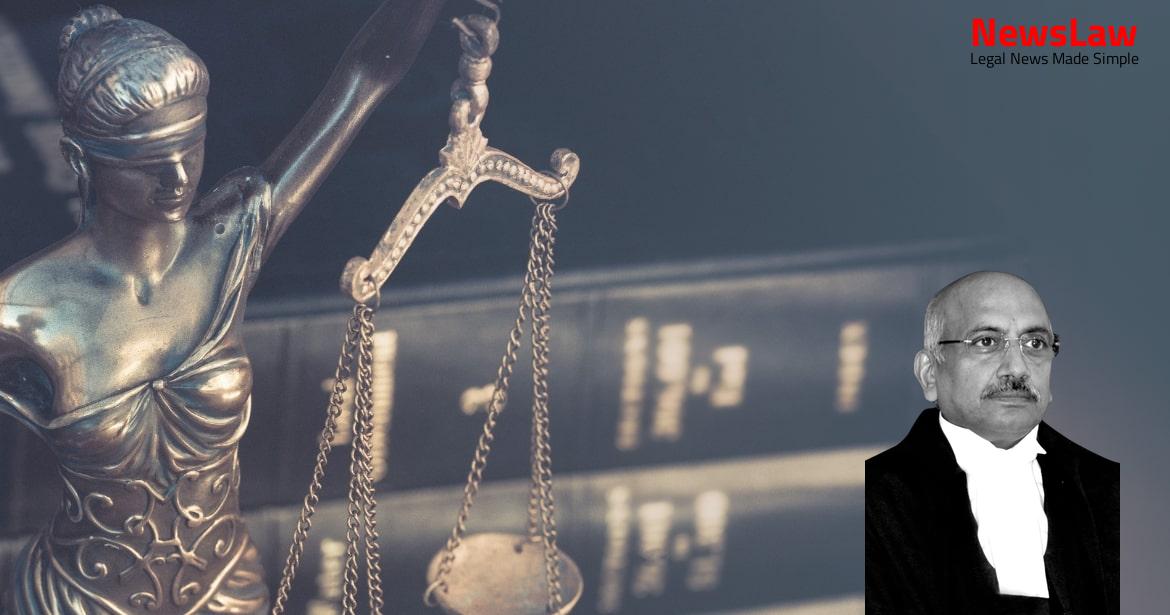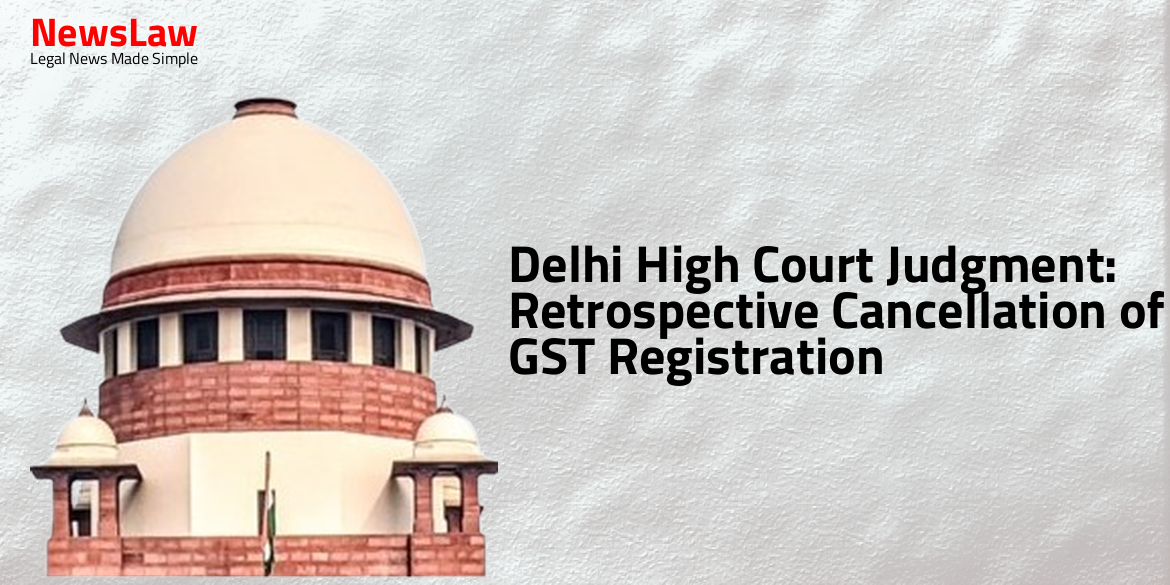This legal case delves into the critical aspect of judicial review in service matters, specifically focusing on the Annual Confidential Report (ACR) grading of a public servant. The High Court and Tribunal’s thorough legal analysis highlights the significance of communication of ACR entries, fairness in performance evaluation, and the overriding principles of Article 14 of the Constitution. Follow along to understand the key considerations and legal precedents that shape decisions in matters of promotions and functional upgradations.
Facts
- The High Court dismissed the writ petition filed by the Union of India and others, upholding the decision of the Tribunal.
- The Tribunal overturned the rejection of the representation by the officer and ordered a review of the respondent’s case, excluding the ACR of 2007-2008.
- The Tribunal considered the inconsistency in the respondent’s ACR ratings over the years, noting that the ‘Good’ rating in 2007-2008 was arbitrary.
- Respondent submitted a representation on 19.06.2010 which was rejected on 01.10.2010.
- Respondent, from Indian Telecom Group A, was on deputation to BSNL as Deputy General Manager, Sikar.
- DPC meeting held on 28.12.2010 for considering NFU in SAG.
- Respondent informed to submit representation to General Manager, Telecom, Rajasthan Circle, Jaipur if unsatisfied.
- Respondent’s ACR grading was ‘Very Good’ for 2005-2006 and 2006-2007, but ‘Good’ for 2007-2008 with same reporting authorities.
- Despite ‘Good’ rating in 2007-2008, respondent not found eligible by DPC for NFU in SAG.
- Respondent filed O.A. No 430 of 2011 before the Central Administrative Tribunal.
Also Read: Challenging Legal Presumptions in Negotiable Instrument Cases
Arguments
- The learned counsel for the respondent argued that the below benchmark ACR of the year 2007-2008 should be ignored as the respondent was not given an opportunity to improve before receiving the ‘Good’ rating.
- The ASG representing the appellants cited the case of Dalpat Abasaheb Solunke and Ors. Vs. Dr. B.S. Mahajan and Ors., AIR 1990 SC 434, emphasizing the decision-making authority of the selection committee and the limited grounds for interference by the Court.
- They highlighted that the quality of work performance can vary over different periods even under the same reporting officer, referencing relevant court cases to support this contention.
- It was further pointed out that while an opportunity for hearing is generally necessary before downgrading a performance rating, subsequent clarifications by the Court have indicated that such hearings might not be mandatory in all cases.
- The denial of functional upgradation to the respondent based on the below benchmark ACR of 2007-2008 was deemed appropriate in accordance with relevant O.M.s and past court decisions.
- The High Court and Tribunal were criticized for directing to ignore the ACR solely on the basis of lack of opportunity before the downgrade, as subsequent O.M.s did provide for such opportunities.
- Opportunity to make representation against adverse remarks/below benchmark must be given within a reasonable time
- Inconsistencies or lack of bona fides in adverse remarks in previous cases
- Previous good ratings by reporting officer/reviewing authority should be considered when suddenly received below benchmark rating
- Previous cases where ACRs were not communicated or adverse remarks were found inconsistent
Also Read: Legal Analysis of Admission Irregularities in Educational Institutions
Analysis
- The respondent’s ACR grading fluctuated over the years, with ‘Very Good’ in 2005-06 and 2006-07, but only ‘Good’ in 2007-08, causing dispute.
- The ACR remarks for 2007-08 were significantly lower compared to previous years, leading to the need for review and reassessment.
- The Tribunal found the adverse remarks in 2007-08 to be extreme and inconsistent with prior assessments, thus prompting the need for reconsideration.
- The Department was directed to reevaluate the respondent’s case for promotion, excluding the contentious ACR of 2007-08.
- The respondent’s strengths in technical knowledge, decision-making, communication, and performance evaluation were noted in prior assessments, contrasting with the adverse remarks in 2007-08.
- All entries in the annual confidential report of a public servant must be communicated to him within a reasonable period for representation and upgradation.
- This principle applies to all types of services except the military.
- Communication of entries is essential for fairness and transparency in public administration.
- Article 14 of the Constitution overrides any rule or government order regarding communication of entries.
- Previous cases like Dev Dutt, Abhijit Ghosh Dastidar, and Sukhdev Singh have established the importance of communicating ACR entries.
- No interference by the court warranted based on the facts and circumstances of the case.
Also Read: Quashing of Enhanced Tuition Fee in Private Medical Colleges
Decision
- The present appeal fails and is dismissed.
- The reasons for dismissing the appeal are stated above.
Case Title: UNION OF INDIA AND ORS. Vs. G. R. MEGHWAL (2022 INSC 1010)
Case Number: C.A. No.-002021-002021 / 2022



